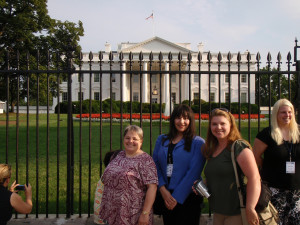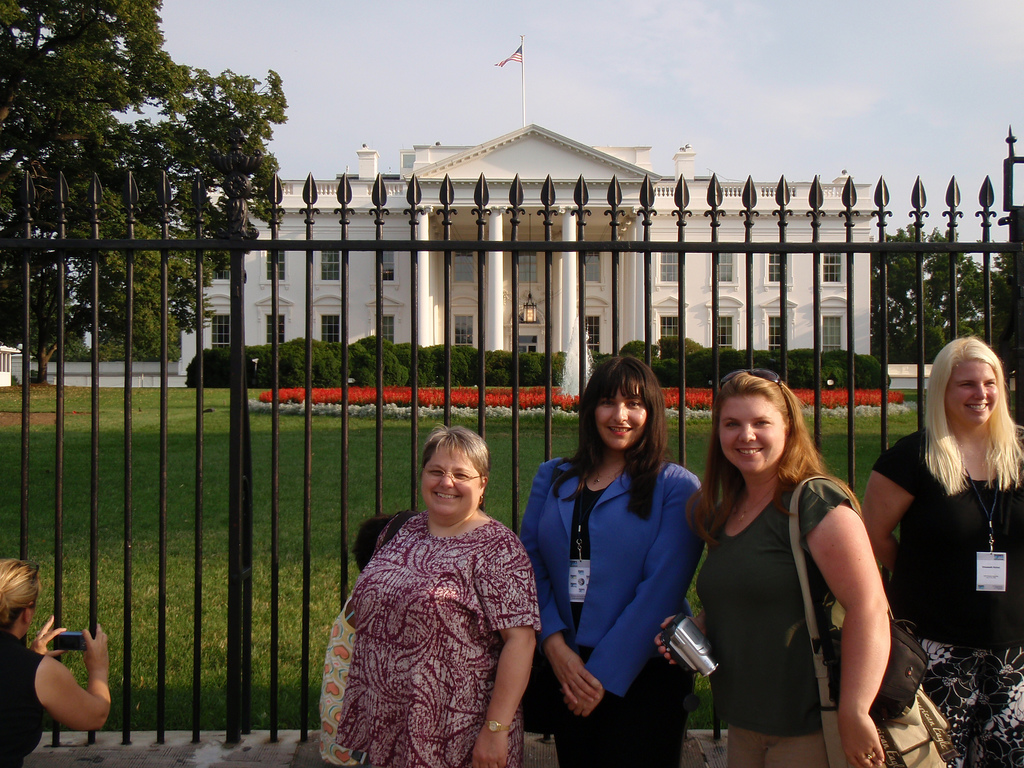>> As a woman who juggles three part-time jobs, I’m always trying to achieve that mythic balance between work and life. It’s an uphill battle. At least once a week, one of my jobs (as a nanny, a writer, and a customer relations manager for a tour agency) takes an unexpected turn. I fall behind on my other two jobs, and worry about my next paycheck.
As a woman who juggles three part-time jobs, I’m always trying to achieve that mythic balance between work and life. It’s an uphill battle. At least once a week, one of my jobs (as a nanny, a writer, and a customer relations manager for a tour agency) takes an unexpected turn. I fall behind on my other two jobs, and worry about my next paycheck.
Lucky for me, advocates and policy makers are paying attention. On June 23rd, the White House, the Department of Labor, and the Center for American Progress will host a >>Summit on Working Families to focus on creating an American workplace that works for all. The Summit will pay particular attention to women in the workforce. >>Four in ten women now act as the sole or primary breadwinner in American families. Women’s financial gains and losses decide whether families eat chicken… or chicken-flavored Ramen noodles.
Let’s break this down. Last year, the typical American household earned $51,017. That’s the same salary that a typical American household earned in the 1980s. Meanwhile, the cost of living has skyrocketed; adjusting for inflation, >>we pay three times more for a loaf of bread and >>almost double for a gallon of gas than we did in 1988. It sounds like the punchline of a cruel joke. How does one of the richest and most technologically advanced nations on the planet have so many families struggling to thrive? The answer lies with women. By tackling barriers to women’s success in the workforce, the Summit on Working Families hopes to achieve economic success for families as a while.
North Carolina stands to benefit from the policies addressed by the Summit on Working Families more than most—since women in North Carolina have it worse than most. Women make up 47% of the NC workforce and have higher levels of education than their male counterparts. Despite this, women >>earn $7,000 less on average than men each year. We continue to be >>overrepresented in low-wage occupations like childcare and home healthcare and >>make up more than half of North Carolina’s minimum wage workers. If those obstacles didn’t sufficientlycripple a family’s economic stability, then there’s childcare. >>Childcare in our state costs an average of $8,500 per child each year. Let’s all pray that no North Carolina child ever falls sick; more than half of parents work full-time jobs and yet have >>no legal right to paid sick days or maternity leave. Workplace policies haven’t kept up with the realities of a 21st century workplace.
For these reasons, Women AdvaNCe has partnered with the Summit on Working Families to spread the word that when women thrive, families and communities thrive. For the next four weeks, we’ll publish one article per week on the Summit and its focus issues. Those issues include:
- Recognizing the need for paid leave;
- Addressing occupational segregation and equal pay;
- Raising the minimum wage;
- Creating career pathways in low-wage jobs; and
- Changing the culture of the workplace to best position women for advancement.
If you’re as excited as I am about the changes we can bring about through the Summit on Working Families, join me in getting involved. >>Share your story of how you balance work and family. Your story could influence the policies that will emerge from the Summit. Better yet, >>nominate yourself or a woman you know by tomorrow, May 30th at 12:00 pm to attend the all-day Summit for free in Washington, D.C. This is our shot at making a difference.
>> Mikaela is a nonprofit professional, social activist, and theatre artist from Raleigh, NC. She graduated in 2012 from the College of William and Mary.
Mikaela is a nonprofit professional, social activist, and theatre artist from Raleigh, NC. She graduated in 2012 from the College of William and Mary.

There are no comments
Add yours